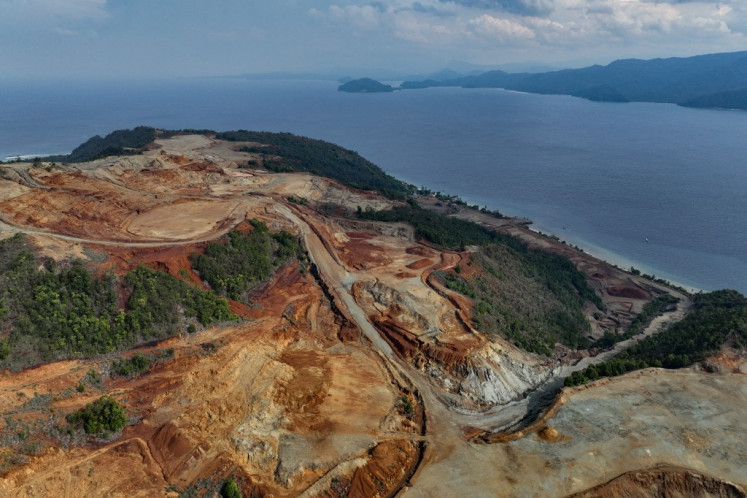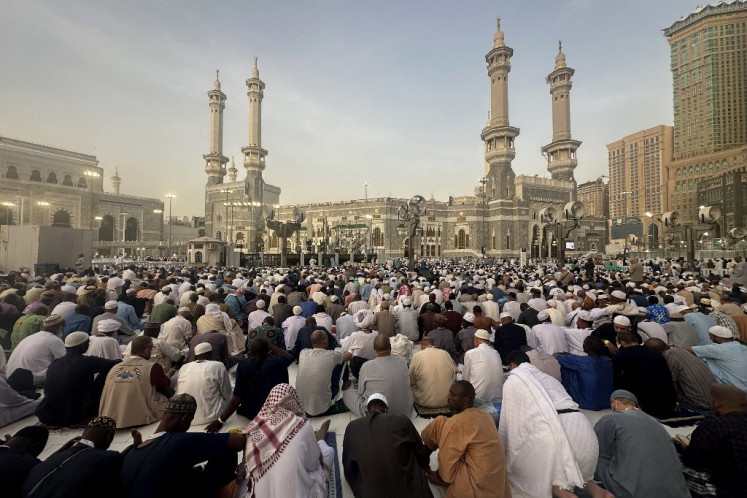Farmers may be damaging historical sites in Java
Historical sites in the Dieng Plateau area, Wonosobo regency, Central Java, are feared to have been damaged or even destroyed altogether due to the indiscriminate and illegal expansion of agricultural fields by local farmers
Change text size
Gift Premium Articles
to Anyone

H
istorical sites in the Dieng Plateau area, Wonosobo regency, Central Java, are feared to have been damaged or even destroyed altogether due to the indiscriminate and illegal expansion of agricultural fields by local farmers.
Wonosobo Regent Kholiq Arif estimated some 380 hectares of historical sites in the region had turned into agricultural fields as local farmers were competing against each other for plots on the sites, planting vegetables on the converted land.
Kholiq said his administration was no longer able to deal with extensive illegal land clearing for agricultural fields.
“That is why we seriously urge the central government to address the issue in order to salvage the Dieng historical sites,” Kholiq told a coordination meeting of Central Java regents and mayors in Purbalingga recently.
Dieng Plateau, which is located in the two neighboring regencies of Wonosobo and Banjarnegara, has long been well known for its his historical sites and as a popular tourist destination in Central Java province.
The resort offers not just cool weather and beautiful scenery but also tens of ancient temples, the
legacy of the Sanjaya Dynasty.
However, local farmers are feared to have trampled on the sites and are accused of growing various agricultural plants on them including potatoes, cabbage and other vegetables.
According to Kholiq, it was clear that the site belonged to the state and that local residents could not just cultivate it as they wanted.
The regent seemed to have been split between the obligation to salvage historical sites and to provide people’s earnings for living.
“I really hope that the central government lends a hand as doing so will be much more effective in terms of saving everything. The regency administration is no longer able to handle the problem,” Kholiq said.
He considered the problem as too sensitive to be dealt with by the regency administration.
“It’s like a simalakama fruit for us,” said Kholiq, referring to an old saying that meant if you ate the fruit you would kill your father, but if you did not, your mother would die.
Separately local farmers argued that they were just making use of abandoned fields to grow vegetables. “We see it as redundant, leaving the fields uncultivated. It’s better to plant them with vegetables. Anyway, we don’t damage the temples,” said Tukimin, a local resident.
Tukimin also said that locals continued to cultivate the fields because they perceived that the regency administration allowed them to do so. The fact that the regency administration did nothing about the activity proved this, he added.
“I bought the field from a previous owner. The rest do the same. What is important for us is that everyone knows that we will not damage a single temple here,” Tukimin said.









